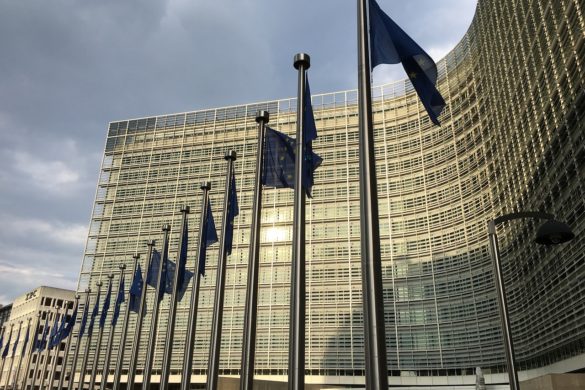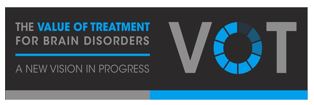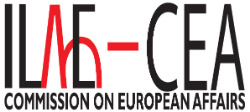Martin Seychell is leaving his current DG.
Tag
european commission
-
-
European Semester Spring Package: Recommendations for a coordinated response to the coronavirus pandemic
-
In a marathon debate of the European Council on 20-21 February, where the heads of state and government European Member States meet, representatives failed to agree on the EU budget for 2021-2027. This budget includes Horizon Europe, the next funding programme for research and innovation. Long term budget negotiations are known to be difficult, but this time around the departure of the UK, a major budget contributor, intensified the discussions. It is likely that more European summits will be needed to come to conclusion on this topic.
-
Breaking news
‘Value of Treatment for Brain Disorders in Europe’ report reveals wide disparities in treatment of brain diseases
June 22, 2017The Value of Treatment Report was presented in Brussels on June 22nd 2017 at a medical conference organised by the European Brain Council (EBC). The European Union spends just over three euro a year per patient on research into brain disorders – while levels of access to treatment in many Member States are becoming worse, not better. -
A calendar of planned open public consultations has been published on ’Your voice in Europe’. The direct link to the calendar is: http://ec.europa.eu/yourvoice/consultations/docs/planned-consultations-2016_en.pdf. European Commission – Calendar of public consultations – 2016 was last modified: August 25th, 2016… Continue Reading
-
The European Commission further strengthened its top managers by appointing four Deputy Directors-General as of 1 September 2016. More can be found in the Press Release. Dr Ruxandra Draglia Akli, currently Director Health in DG Research and Innovation, has been… Continue Reading
-
The Commission has just published a roadmap concerning policy areas of interest to EAN. The roadmaps concern the following policy areas: Food Safety Public Health To consult all the existing roadmaps please refer to the following website:
http://ec.europa.eu/smart-regulation/roadmaps/index_en.htm For further… Continue Reading -
V: The International League Against Epilepsy (ILAE) structure is quite different from the EAN one, as it works with national ILAE chapters worldwide. Can you please illustrate to the EANpages readers how do the ILAE structures work with these national chapters? And how is the relationship between ILAE-CEA and ILAE? ILAE comprises the national epilepsy societies (chapters). There are six regional commissions within ILAE and the Commission on European Affairs (CEA) is the largest, with 46 chapters belonging to the CEA.
-
Executive Page
President’s Page: The new Consensus Statement on European Brain Research
April 1, 2016On March 18th, 2016 the ‘Consensus statement on European Brain Research’ (Morris et al., 2016) has been launched in Brussels at the Brussel office of the European Brain Council. Several organisations related to brain science, including the European Academy of Neurology, participated. The European Brain Council is uniting the European organisations of physicians for Neurology, Psychiatry, Neurosurgery, the scientists for both molecular and systemic Neurosciences and the European patient organisations for neurological and psychiatric diseases (see below 1). -
 by Anna Sauerbier
Outbreak of Zika Virus Disease – general information
The Zika virus and potential neurological effects
The European Medicines Agency (EMA) has released a revised guideline on medicines for the treatment of Alzheimer’s disease and other types… Continue Reading
by Anna Sauerbier
Outbreak of Zika Virus Disease – general information
The Zika virus and potential neurological effects
The European Medicines Agency (EMA) has released a revised guideline on medicines for the treatment of Alzheimer’s disease and other types… Continue Reading -
Other News
Polish Brain Plan – An example of a comprehensive national brain strategy
December 1, 2015Brussels, Belgium – 17 November 2015 Poland is the first EU member state to launch a national Brain Plan aimed at a better and more accurate use of the health national budget. The EBC was instrumental to this initiative and… Continue Reading -
Interviews
Interview with Thomas Skordas of the DG for communication networks, content and technology, European Commission
November 1, 2015"Horizon 2020 is the financial instrument implementing the Innovation Union, a Europe 2020 flagship initiative aimed at securing Europe's global competitiveness", Thomas Skordas. Elena Moro (EM): Can you briefly illustrate to the Neuropenews readers what are the FET – Future and Emerging Technologies – actions and which place do they take within the EC’s H2020 programme? Thomas Skordas (TS): FET – Future and Emerging Technologies – is part of the "Excellent Science" pillar of Horizon 2020. The other components of this pillar are the "European Research Council (ERC)", the "Marie Skłodowska-Curie actions" and the "Research infrastructures" actions. Altogether, these four components aim to reinforce, widen and extend the excellence of the Union's science base and ensure a supply of world-class research and talent pursuing to secure Europe's long term competitiveness and well-being. -
How do neurological patients and their families experience stigma? That was the subject of a European Parliament meeting on 14 October, 2015 “Neurological, chronic pain and mental health conditions are not widely recognised or understood by the general population. Negative… Continue Reading
-
Interviews
Interview with Karin Sipido, President of Alliance for Biomedical Research in Europe
September 1, 2015Elena Moro (EM): Can you briefly introduce the Alliance for Biomedical Research in Europe (BioMed Alliance) to the Neuropenews readers? Karin Sipido (KS): The Alliance for Biomedical Research in Europe (BioMed Alliance) is a unique initiative representing 21 leading European biomedical societies that together include more than 400,000 researchers and health professionals across Europe. -
Interviews
Interview with Isidoros Karatzas, Head of the “Ethics and Research Integrity” sector at the European Commission
May 1, 2015Gian Luigi Lenzi (GLL): Ethical standards are an important aspect of H2020. How did the EC decide on these standards and who took part in their definition? Isidoros Karatzas (IK): The ethics standards are based on, for example, the principles of the European Charter of Fundamental Rights, the European Convention of Human rights (Article 19, Horizon 2020 regulation). Also on the relevant principles that flow from specific European and National legislation such as data protection and privacy, clinical trials etc. The Sector also follows and participates in the dialogue with the responsible Member States structures, such as the national Bioethics Committees, the network of Research Ethics Committees etc.
Newer Posts




